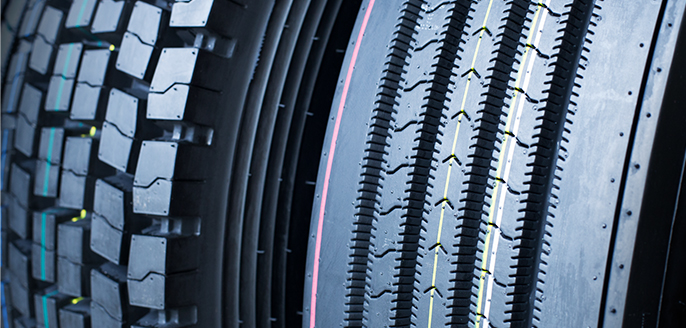
A Close Look at Casings
How to evaluate their integrity and get the best tires for your money
For any commercial trucking fleet, tires are an important, controllable operating cost, and evaluating the casing integrity of the tires they choose is critical to maximizing tire value.
As fuel costs rise, choosing the right tires becomes more important. They are by far the largest controllable cost most fleets have, outside of wages, and can affect fuel efficiency and productivity of an operator’s trucks.
That’s why it’s critical for operators to choose tires that offer maximum value on a cost-per-mile basis. Casing integrity is an important part of a tire’s value.
What is the casing?
First, a quick review. A tire’s casing is essentially the “body” of the tire – the sidewalls and crown. Everything except the tread, which can be replaced several times throughout a tire’s life.
Approximately 70 percent of a tire’s value is in the casing. You want to look for tire casings that can maintain its integrity through multiple re-treads.
When evaluating tire casings, the main thing you must look at is how they were manufactured.
Precision
The first thing you want to look at is the overall quality and precision with which the tire casings are manufactured. The tire casings should be precisely round and true, with consistent diameter and thickness throughout the casing.
While quality is important in general, it’s especially important when it comes time to retread the tires.
The most popular and successful retreading is done through a pre-cured process, often called a “cold cap” process. This process creates a strong bond between the casing and the new tread.
The other type of retreading process that is sometimes used is called mold cure, or “hot cap” retreading, in which new layers of uncured rubber is added, and the complete tire is pressed into a mold and “cooked” at a high temperature. If the diameter of the casing is not up to industry standards, the new tread won’t fit properly and won’t fully bond to the casing, so the tire may ultimately fail prematurely.
This essentially creates a new tire, but this process can be hard on the casing. If tires are not made well, the casings can lose their integrity. You’ll have tires that are prematurely dry and cracked, despite being relatively new tires.
Warranty
The best thing you can do to evaluate tire casings is look at the manufacturer warranty. Brands that build their tires well will stand behind their products.
Armstrong commercial tires are manufactured to the best industry standards and are backed up with a seven-year warranty. The casings are guaranteed through two retreading processes to be free from defects in workmanship and materials.